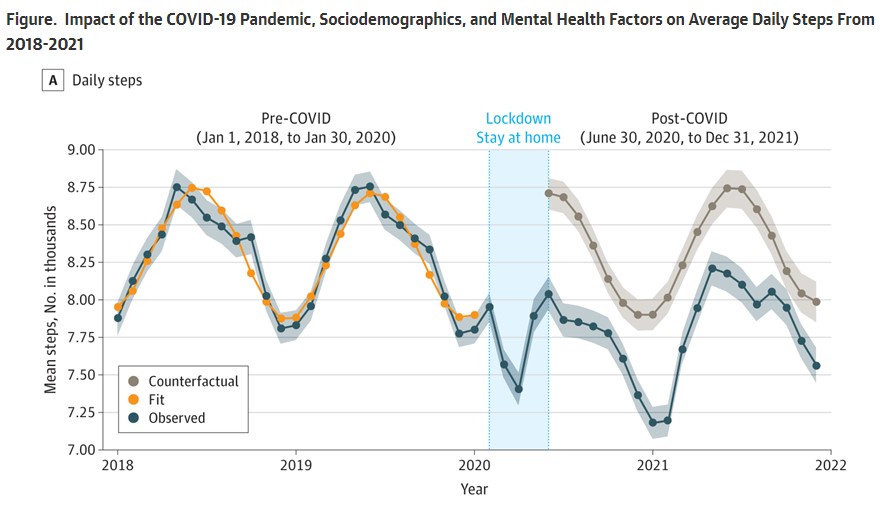It will be decades before we know how many have been impacted in ways that were unanticipated. Being at home, for example, should have given more time to exercise, yet it often did the opposite. Despair, prevalent media discussing disaster in real time, and social isolation don't lead to a desire to exercise in some.
The effects of lockdowns, and even claims you had to wear a mask while on a walk outside, are still being felt. A new paper notes a significant decline in daily step counts persisted even after most COVID-19–related restrictions were relaxed, suggesting COVID-19 affected long-term behavioral choices.

The All Of Us Research Program Controlled Tier data set, released June 2022, cohort included participants who wore a digital device tracking physical activity (Fitbit Inc) for at least 10 days each month, which means the sample was not representative and could be even worse among those with lower socioeconomic status or did not own or wear a device to be tracked. The 5,443 respondents were almost 72 percent female and 86 percent White and used their device in the 6 months before and after government lockdowns.
Those reporting worsened mental health in the early COVID-19 period, those with the least education, therefore most susceptible to media hyperbole, and those who were told they were not high-income enough to be unessential and had to risk their lives were most like to report reduced activity. Comorbidities like obesity didn't make much difference but living in the northeast US did, as did age.
It is currently unknown whether this reduction is steps is clinically meaningful over time.




Comments